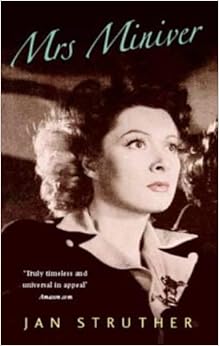A good novel can give us a glimpse of what it was like for others back in the day and how the average person dealt with day-to-adversity as well as anxiety about the state of the world. That book doesn't have to recently written but a new story can take us back to a few older ones along the same line as I will attempt to show here.
Recently released into paperback, Jennifer Ryan's The Chilbury Ladies' Choir is set in the title English village as WWII begins and with many of the local men called to military service, the church choir prepares to be disbanded. However, the women of Chilbury(lead by a female music professor) see no reason to give up their weekly worship via song and soon form an all-ladies' choir.
Their stories are told through journals and letters, like Mrs. Trilling, a widow who takes in an unmarried colonel while her son is fighting overseas, Miss Paltry, a midwife with limited scruples and secrets to keep and Venetia, whose romance with a newly arrived artist leads to more trouble than anyone expected.
As the war goes on, the women and girls of Chilbury learn to handle the hard times at hand as well as prepare for what may come, by sharing their hopes and sorrows as well as keeping a song in their hearts. Author Jennifer Ryan did a fair amount of research into what those days were like for folks back then and her blend of history and heart serves the reader well:
The Chilbury Ladies' Choir is putting many favorably in mind of The Guernsey Literary and Potato Peel Pie Society, which came out in 2008 and was co-written by Annie Barrows and the late Mary Ann Shaffer.
That novel also involved letters, as newspaper writer Juliet learns more than she intended to about the life and times of the island folk during their time of German occupation during the war.
From a request to find the works of Charles Lamb comes insight and intimacy from correspondence with the resourceful members of the "book group"(formed partly to cover up local gatherings to share the merger food supplies they manage to save from the invading forces at their doorstep) and their erstwhile leader Elizabeth, a plucky soul whose heart was in the right place even when she loved someone from the wrong side of the war.
The book is being adapted into a movie as we speak, with Lily James and Jessica Brown Findlay cast as Juliet and Elizabeth, a good sign indeed. With the film possibly being ready as soon as next year, it might be high time to reread this lovely tale of steadfast folk or discover the joys of it for the first time:
A book and film that I feel truly paved the way for both of these novels(and a good deal more) is Mrs. Miniver. Based upon a series of articles written by Jan Struther, this fictional yet all too real leading lady represented the small town charms and standards that defined the English resolve to fight in WWII.
The book was published in 1939, with the Hollywood version following in 1942 and both are credited with gaining American sympathies towards joining the war. It didn't hurt that Jan Struther went on a strong lecture tour in the US for the book, not to mention that the movie won six Oscars.
Mrs. Miniver,however, wasn't just a piece of propaganda. It gave a human face to those over in England and elsewhere who did their best to stay true to their better selves during a time of ever increasing crisis. It also showed how even the most casual kindness to others can make a huge difference to even a small corner of the world:
So, as we move on to make sense out of the senselessness around us, it always helps to have a good book or two(or perhaps three!) to help us along the way. Looking back at those struggles in the past,even through fiction, and seeing how people cope then should offer us hope that we,too, can get through this together in the here and now.
Going back in time does have it's disadvantages, as numerous sci-fi stories and even the Outlander book and TV series show us. Sure, meeting a handsome Highlander sounds great but plenty of real world obstacles were thrown in that path to true love there. Perhaps it's best that we don't have any time machines or mystical portals to pass through as it may be best to take such a journey from the comfort of our couches:




No comments:
Post a Comment